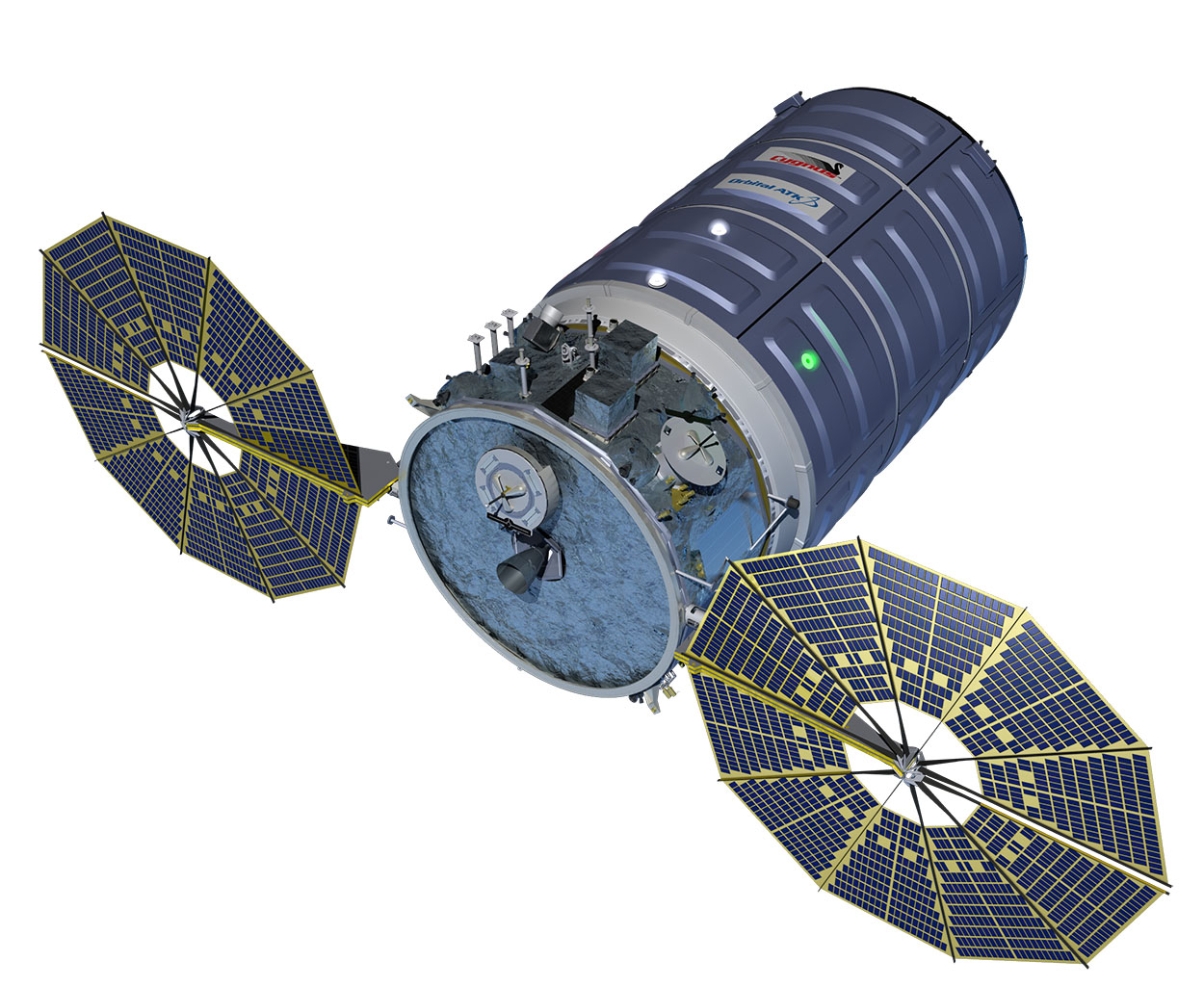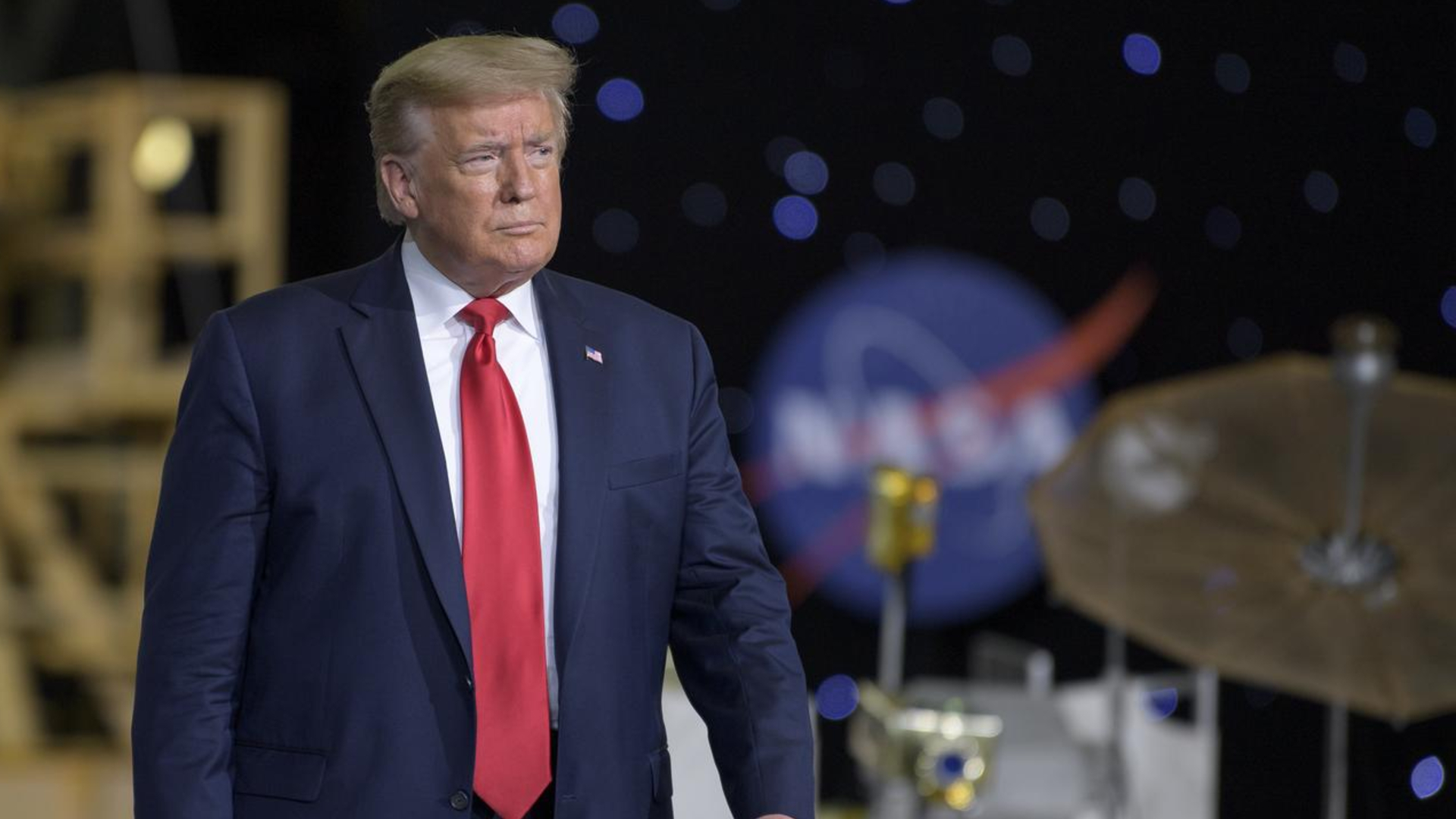NASA Orders 2 More Space Station Cargo Missions from Orbital ATK

WASHINGTON — NASA ordered two more cargo deliveries to the International Space Station from Orbital ATK under a 2008 Commercial Resupply Services (CRS) contract, a company spokeswoman said Aug. 12.
Orbital ATK, Dulles, Virginia, will fly two more missions under its 2008 contract for a total of 10 flights, according to Orbital ATK spokeswoman Vicki Cox. The company designated the missions OA-9e and OA-10e, Cox said. She declined to say when those flights will occur, although the company has said it plans to launch any new CRS missions it gets from NASA on Antares once it completes two deliveries using United Launch Alliance’s Atlas 5 rocket. The Atlas 5 launches are slated for December and early 2016 from Cape Canaveral, Florida.
NASA may also order additional cargo flights from its other CRS contractor, SpaceX of Hawthorne, California. "A modification is in work with both [CRS] providers," NASA spokeswoman Stephanie Schierholz wrote in an Aug. 13 email. "Additional missions for SpaceX are still under discussion."
SpaceX spokesman John Taylor referred questions about the company's CRS contract to NASA.
Neither Schierholz nor Cox would disclose the financial terms of NASA's latest CRS orders. The agency signed CRS contracts with Orbital ATK and SpaceX in 2008. Each of these indefinite-quantity, indefinite-delivery deals runs through 2016 and has a maximum value of $3.1 billion. The eight deliveries NASA ordered from Orbital ATK in 2008 cost the agency $1.9 billion. The 12 missions NASA ordered from SpaceX that year cost $1.6 billion.
The additional orders coincident with another delay for the awarding of follow-on CRS contracts. Orbital ATK, SpaceX, Boeing, Lockheed Martin and Sierra Nevada Corp. all bid for CRS-2 work and now will all wait until at least November for NASA to make an award.
NASA solicited CRS-2 bids last September and had planned to make awards in May. That slipped to September, and then again to November.
Breaking space news, the latest updates on rocket launches, skywatching events and more!
Both Orbital ATK and SpaceX suffered launch failures on their latest delivery attempts to ISS. On what was to be its third CRS mission, Orbital ATK's Antares rocket exploded moments after its Oct. 28 liftoff from the Mid-Atlantic Regional Spaceport at NASA's Wallops Flight Facility in Virginia. SpaceX's Falcon 9, which launches from Cape Canaveral, exploded about two minutes after liftoff June 28 on what was supposed to be its seventh CRS delivery.
Orbital ATK blamed Antares core stage AJ-26 engines, Soviet-vintage hardware refurbished by Aerojet Rocketdyne of Sacramento, California, for the October failure. SpaceX has yet to come up with a root cause for the June 28 Falcon 9 failure but believes a faulty strut in the upper stage contributed to the mishap.
Orbital ATK is replacing the AJ-26 with Russian-made RD-181s but plans to resume ISS cargo deliveries in early December by launching its Cygnus spacecraft aboard an Atlas 5. Orbital ATK ordered one Atlas 5 shortly after Antares failed and announced Aug. 12 it had ordered a second for a 2016 CRS mission. Orbital plans to resume Antares launches from Virginia in early 2016.
SpaceX founder and chief executive Elon Musk has said the company will resume Falcon 9 launches no sooner than September.
This story was provided by SpaceNews, dedicated to covering all aspects of the space industry.
Dan Leone is an editor and reporter for the ExchangeMonitor Publications covering the Department of Energy and Department of Defense nuclear weapons programs. From 2011 to 2016, Dan was the NASA reporter for the space industry publication SpaceNews, where he covered U.S. space agency policy, news and missions. He also produced the SpaceGeeks podcast showcasing interviews with space industry professionals. Dan earned a bachelor's degree in public communications from American University. You can find his latest project on Twitter at @leone_exm.

